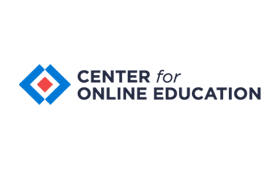 We hear a lot about what employers, parents and higher education institutions think about the value of a college education. But do recent graduates think college is “worth it?” A new study from Gallup and Purdue University shares feedback from more than 30,000 undergraduate alumni.
We hear a lot about what employers, parents and higher education institutions think about the value of a college education. But do recent graduates think college is “worth it?” A new study from Gallup and Purdue University shares feedback from more than 30,000 undergraduate alumni.
Tuition, loans and salaries are the big news in calculating return on college investment, but students who’ve navigated courses and graduation requirements know that there’s more to it than that. The best person to ask for a review is someone who has direct experience with the process. The Gallop-Purdue report offers insight on the value of a college education from the perspective of those who have successfully completed their academic programs.
50% of all Graduates “Strongly Agree” that College Was Worth the Cost
This number is fairly encouraging, but only tells part of the story. There are many variables to consider, including the types of schools the students attended. When the responses are categorized by school type, fewer private for-profit students (26%) strongly agreed that college was worth the cost, as compared to those completing degrees at public universities (52%) and private nonprofit universities (47%). Length of time since graduation was also a factor in students’ responses about worth; only 38% of recent graduates (i.e., 2006-2015) strongly agreed that the experience was worth the cost.
Why are school type and graduate dates important to consider? Private for-profit schools can be more expensive than other institutions, resulting in students’ borrowing more to attend. Recent grads have had less time to pursue their careers and repay loans, and may earn lower salaries than those who have been in the workforce longer. Additional factors reviewed include income and field of study. In the Gallop-Purdue report, alumni with higher incomes and those working in higher-paying fields (e.g., engineering) were more likely to perceive college as being worth the cost.
Faculty Interaction and College Experiences Affect Value
There’s no denying that money is an important part of the college decision, especially when calculating expenses and loans with future income potential, but the college-value big picture is more than a financial transaction. Influential factors include developing meaningful professional relationships with faculty members and mentors.
Students in the Gallup-Purdue study who agreed that the college experience was worth it were more likely to also agree with the following statements:
- “My professors … cared about me as a person.”
- “While attending … I had a mentor who encouraged me to pursue my goals and dreams.”
- “I had at least one professor … who made me excited about learning.”
Pursuing these kinds of high-quality, interactive relationships at a distance can be challenging. Students and instructors alike must take initiative to communicate throughout an academic program, which doesn’t typically happen online. What can you do to encourage this kind of connection? As a student, look for the following opportunities:
- Ask your instructors about opportunities beyond your classes. Are they involved in faculty committees, research and writing projects, other teaching responsibilities or professional associations? Formal programs and informal collaboration can lead to your participation in projects that lead to advanced skill development, professional networking and mentoring conversations. For example, undergrads in the University of Florida’s Online B.S. in Microbiology and Cell Science program can work with faculty on summer research projects.
- Pursue student leadership roles. Student organizations may not be as prevalent online as they are on campus, but they do exist. Identify your school’s student government system and affiliations with academic honor societies and get involved. Arizona State University’s student clubs (e.g., Video Game Development, eSports, Philosophy) show how on-campus groups can benefit from online membership options, which connect students with each other, alumni, resources and interests.
- Connect with your instructors via social networking sites. Check faculty bios posted by your school or department to see if social accounts, such as Twitter and LinkedIn, are listed. If not, ask your instructors if they are open to connecting this way before you send an invitation.
- Reach out to alumni. Many schools have formal alumni associations that actively integrate current students as members or program participants. Look for programs related to alumni mentoring, networking events and online communities that host conversations and job information.
- Identify off-campus mentors. Your department faculty members are just one possible source for mentoring opportunities. Who in your wider network might be willing to serve as a coach or guide as you complete your degree? Mentors can be prior teachers, work supervisors or volunteer coordinators as well as family members, friends or neighbors who work in your field of interest or who completed a similar degree program.
The Gallop-Purdue study also revealed that activities supporting job and career goals had an influence on students’ ideas about the value of college. Those who agreed that college was worth the cost were more likely to indicate that they “had an internship or job that allowed me to apply what I was learning in the classroom.” Ask your instructors, academic and career advisors about how you can gain practical experience in your field while you are taking classes:
- Internships and Co-ops: These activities may or may not be required, depending on your program. If optional, consider taking advantage of the resources available and ask how this experience might earn academic credit while you get training in a real-world workplace setting.
- Practicum Courses and Fieldwork: Typically found in programs such as nursing and education, these experiences are directly connected to your field of study, and can include supervision and feedback from both faculty members and on-site personnel. If these aren’t part of your program, ask your instructors about how you might design a hands-on independent study project for credit.
- Part-time and Contract Work: If you are not already working full-time, taking a part-time job related to your field of study can help you make the transition from school to work, and to a new career field. If you already have some experience in your field of interest, freelance work can help you build your network and portfolio.
- Service Learning Opportunities: Volunteer and community organizations have ongoing projects. Contact groups in your area to find out about current needs, and to see if your skills, interests and availability might be a match. This is another great way to expand your network and develop practical skills. VolunteerMatch and Idealist are two resources you can use to search for positions and projects in your local area.
Studies like the one conducted by Gallup-Purdue are not a prediction of whether or not your college experience will be worth it. Instead, they offer a broad look at what other students have experienced, and provide a way to reflect on your priorities as you enter, or continue with, a degree program.
Each student enters college with specific resources, motivations, goals and expectations. Keep in mind that perceptions of the value of a college education can change over time. What impact will the financial obligations and experiences related to being a college student have on your life after graduation? What made, or will make, college worth the cost for you?
Join Melissa Venable on Twitter, Google+ and Facebook.
Photo by COD Newsroom, CC:BY
